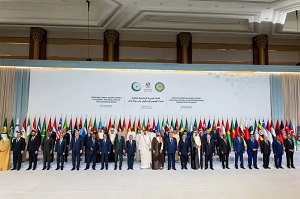Jordan poised to produce 36,000 tonnes of dates this year — stakeholder
The Jordan Times
AMMAN — Jordan is expected to produce 36,000 tonnes of dates in 2025, according to the head of the Jordan Dates Association, Anwar Haddad.
Speaking to Al Mamlaka on Wednesday, Haddad said that Jordan currently accounts for approximately 14 per cent of the world’s Medjool date production.
Globally, annual output of the premium variety ranges between 200,000 and 250,000 tonnes, he said.
Haddad added that the number of date palm trees in the Kingdom is projected to reach one million within the next two years, highlighting the superior quality of Jordanian dates as a key factor in the sector’s growth.
While emphasising the industry’s potential to bolster the agricultural sector, he warned that it still faces significant challenges, most notably, water scarcity and a shortage of skilled labour.
Stakeholders said recently that the heatwave that affected the Kingdom in August, while disrupting daily life and agriculture, has delivered an unexpected boost to the country’s date sector.
Producers report that higher temperatures accelerated the ripening process and reduced the occurrence of puffiness, a defect that can affect fruit quality.
Haddad told The Jordan Times in August that the impact was especially evident on Medjool dates, which dominate the country’s production.
The harvest began in southern areas such as Ghour Safi and the Jordan Valley and will gradually move northward. Haddad attributed the advanced season not only to the heatwave but also to shifting water patterns in the Kingdom’s dams.
Saleem Abu Khalaf, a leader of a date farm cooperative, told The Jordan Times at the time that while extreme climate conditions pose risks, they can occasionally benefit certain crops.
“The date sector is a clear example of how higher temperatures can accelerate maturity and, in some cases, improve fruit quality. However, these benefits must be weighed against broader climate challenges, which strain water supplies and increase costs for farmers,” Abu Khalaf added.
Latest News
-
 Arab-Islamic Summit issues final statement, condemns Israeli attack on Qatar, calls for accountability
Arab-Islamic Summit issues final statement, condemns Israeli attack on Qatar, calls for accountability
-
 King delivers Jordan's address at Emergency Arab-Islamic Summit in Doha
King delivers Jordan's address at Emergency Arab-Islamic Summit in Doha
-
 Leaders unite against ‘Israeli’ strike on Qatar at emergency Arab-Islamic Summit
Leaders unite against ‘Israeli’ strike on Qatar at emergency Arab-Islamic Summit
-
 Gaza’s death toll rises to 64,905: Health Ministry
Gaza’s death toll rises to 64,905: Health Ministry
-
 Rubio promises Netanyahu “unwavering support” to ‘Israel’ in Gaza goals
Rubio promises Netanyahu “unwavering support” to ‘Israel’ in Gaza goals